0:01-28:02: Greetings! We welcome one another—and by extension you—back from a week long break with some complaints about the heat, wifi, and NIMBYs, before moving on to talk about the Guardian’s weekly print edition and the struggle to handle the current state of affairs. How does that tie into the kind of thing we normally talk about? Weirdly enough, it all comes together around the 8:30 point. If you don’t like hearing us talk about the state of the United States these days, or just don’t want to hear about that particular topic altogether, why not skip to….
28:02-49:16: here, where we finally get to the funny book blabbity-blab? Although we start off kind of in media disagreement, as Graeme reports a comment about the upcoming Heroes In Crisis and a comment he found, as he puts, “speaks to a particular kind of entitlement in superhero fandom.” Discussed: Spider-Man; Uncanny X-Men; 52 (the comic series); how standards for stories change while stories stay the same; and, obviously, Heroes in Crisis.
49:16-1:07:05: Speaking of Tom King (since he’s going to be writing Heroes in Crisis), we’d been asked to discuss Batman #49 by “Fifth Beatle” Matt Terl. Discussed: Alan Moore, King and Gerard’s Mister Miracle, Dan Clowes’ Ice Haven, the challenge or writing the Joker, On Her Majesty’s Secret Service, and more.
1:07:05-1:30:47: Since the arc in Batman is building to a wedding, we talk about the X-Men Gold #30, a wedding issue that came out this week, where there was a wedding…but not the one promoted. Also discussed: Tom Taylor’s X-Men Red; Taylor’s Injustice and Wolverine runs; weird analogies about being a retired reader of X-Men; Chris Claremont as the protagonist of Alfred Hitchcock’s Vertigo; plus two issues of Spidey: School’s Out as read by Jeff.
1:30:47-2:01:20: Still talking about comics, but maybe not as much with a focus on books that have been outgrown: we discuss Man of Steel #4 by Brian Bendis and Kevin Maguire; Justice League #2 by Scott Snyder, Jorge Jimenez, and Alejandro Sanchez; Avengers #3 by Jason Aaron, Paco Medina,and Ed McGuinness; and Shanghai Red #1 by Joshua Hixson and Christopher Sebela.
2:01:20-2:21:36: Because Graeme has superpowers, he was able to read Joe Casey and Ian MacEwan’s MCMLXXV, and it sounds pretty great. Also discussed: what we are behind on reading; amazing material mentioned in old Marvel Age issues that never saw the light of day; Star Wars: Let’s Smooch In The Empire; the recalcitrance of Chris Claremont; Steve Gerber’s run on Cloak & Dagger; and more.
2:21:36-2:48:24: Remember those good old days when we would tell ourselves and you that we’d gotten to the end of the podcast and there was nothing else to say…and then we’d keep talking for an absurdly long period of time after that. WELL, THE GOOD TIMES HAVE RETURNED as we bermoan our failure to discuss recent comics news and then dig in to one piece of comics news: DC’s deal to stock 100 page giants in WalMarts. We discuss the line-up of books, the strategy behind the books, and more.
2:48:24-end: And finally: closing comments! Look for us on Stitcher! Itunes! Twitter together and separately: Graeme and Jeff! Matt! Tumblr, and on Patreon where a wonderful group of people make this all possible, including the kind crew at American Ninth Art Studios and Empress Audrey, Queen of the Galaxy, to whom we are especially grateful for their continuing support of this podcast.
NEXT WEEK: Another skip week, as Jeff attends to some personal business (wish me luck, I think I’m going to need it!) But join us in a fortnight for Wait, What? Ep. 251!
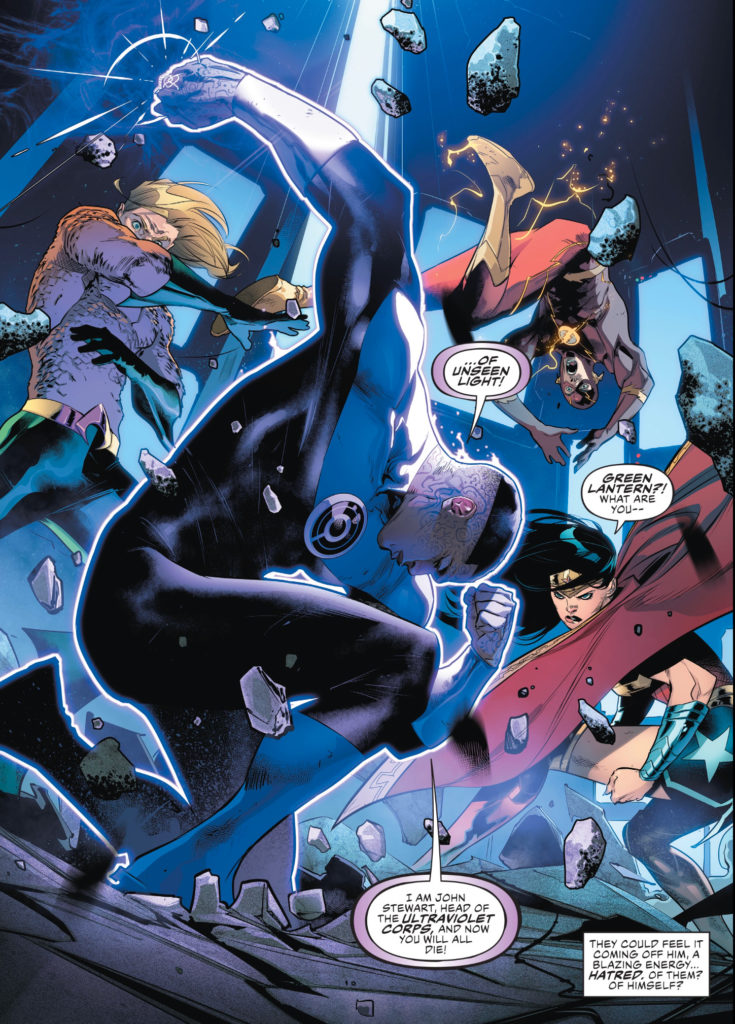
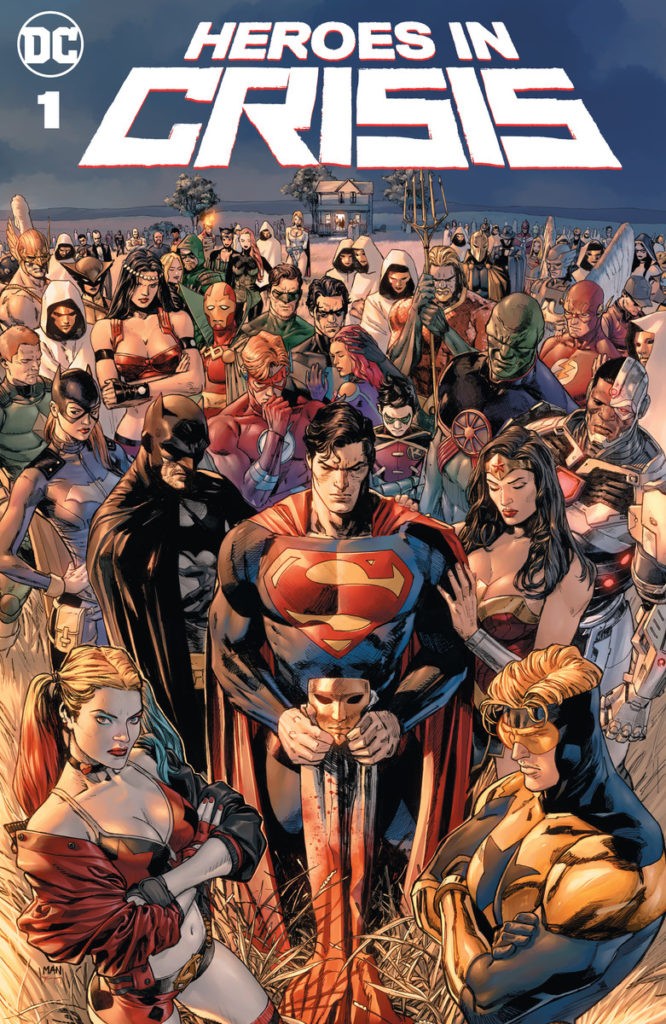

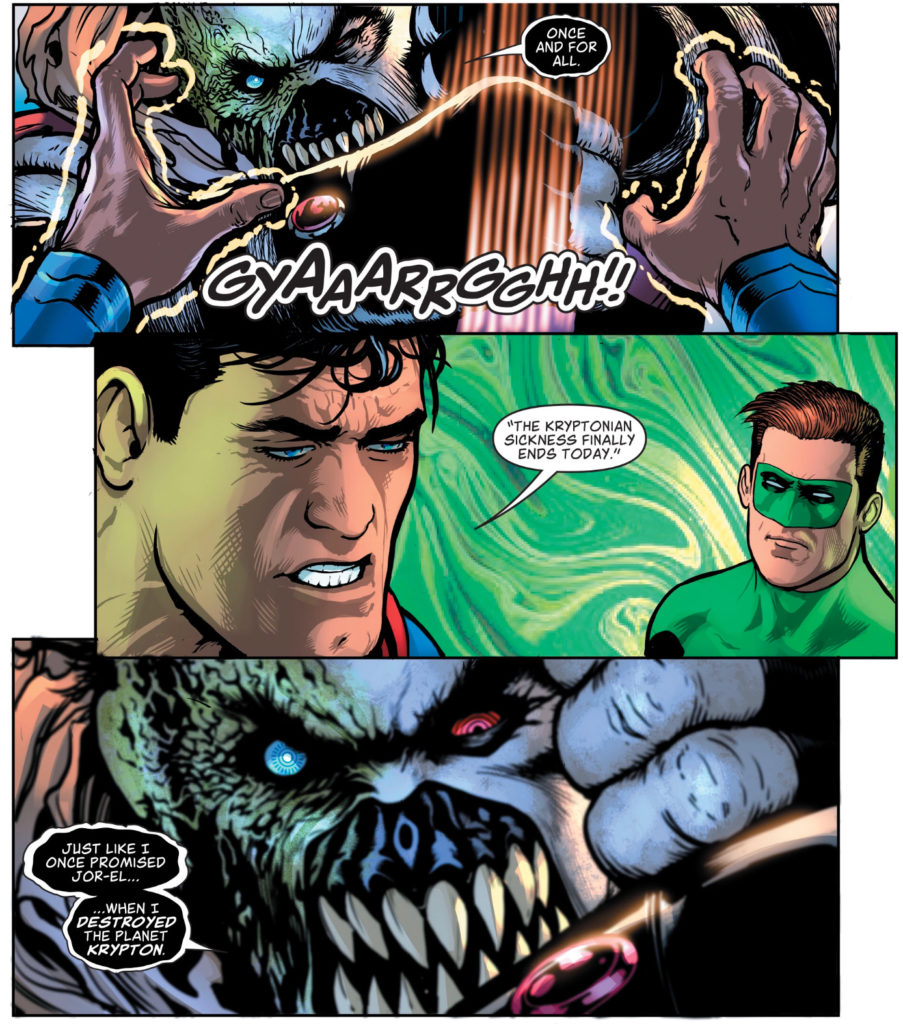
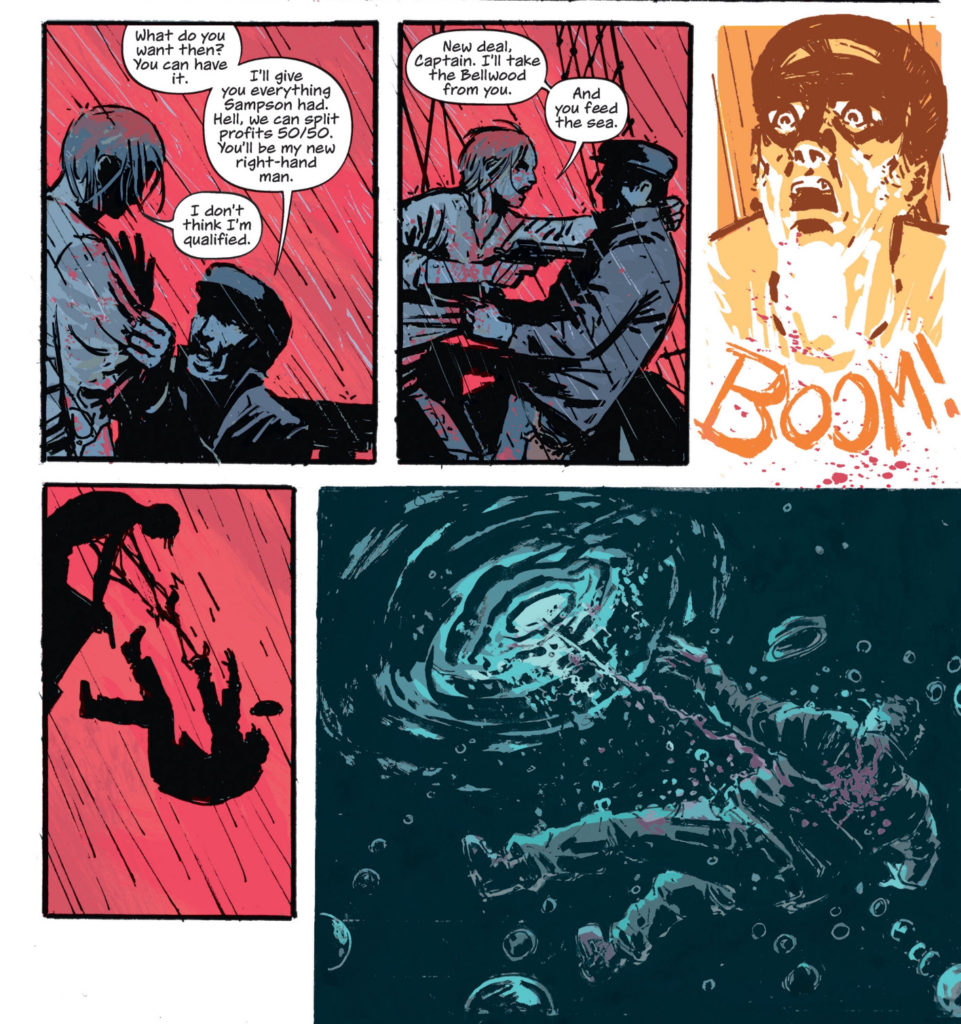
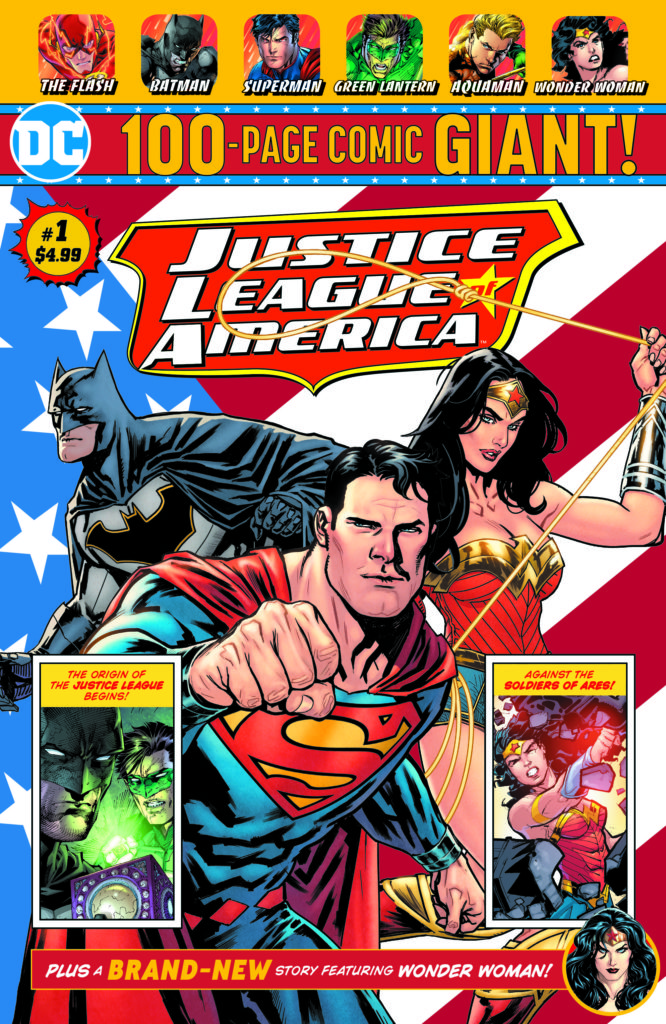


And for those of you who prefer the cut & paste way:
http://theworkingdraft.com/media/podcasts2/WaitWhat250.mp3
I’m posting this before reaching the end of the podcast, so please forgive me if I cover anything that is mentioned later.
Graeme– please know that I love you and Jeff equally! I genuinely listen to Wait, What? for your friendship, and while I enjoy the comics discussion, I would continue to listen even if the industry collapses tomorrow and the two of you renamed the podcast Wait, Waffle and focused on culinary delights.
Regarding the “I’d prefer not to be shown the cause of the trauma” conversation, I think Graeme may have misunderstood the statement’s point. I too would prefer the trauma not to be shown, primarily because I don’t trust the comics industry not to sensationalise it, nor add it to the long line of women disposed of to add to the male protagonist’s narrative. It’s interesting that you bring up Identity Crisis as that is one of the biggest examples of this as it shows a woman being raped, yet instead of exploring how it affects her we are shown how it affects her husband and male friends; and how these men bully another woman into trying to fix the problem for them so as to protect the other women in their lives. Said woman, of course, is then blamed when the plan doesn’t go according to plan. Indeed, the only traumatic event in Identity Crisis that is in any way explored beyond sensationalism is the fallout of Tim Drake’s father’s murder: and that is primarily because Robin had both his own title and headlined the Teen Titans at the time, giving them space to do so.
To this we can also add the traumatic event of Barbara Gordon being shot and becoming a paraplegic, rescued only because a couple of years later a female co-writer felt the need to do so, not because editorial felt the story needed to be told; and the original woman in a refrigerator, Alex DeWitt, who served only as something to motivate Kyle Rainer further along the heroes path.
It’s interesting that you mentioned Mariko Tomaki’s She Hulk run, as this was a valiant attempt at an insightful exploration of PTSD. Similarly, the continuing narrative of Jessica Cruz and her social anxiety is more nuanced than I would have expected.
But, as I said, I really don’t trust the same editorial team responsible for Identity Crisis (or, over at the competition, Sins of the Father) to show a traumatic event in any way other than as exploitation, and therefore am far more interested in the attempt to overcome the trauma being explored instead.
I’m now halfway through the X-Men segment as I type, and it’s interesting that Claremont’s X-Men were all about exploring trauma, especially sexual trauma, through metaphor. Rogue is a suitable example of this: she has a teenage encounter with a boy that gets out of control and is left unable to bring herself to physically touch anyone as a result. Illyana Rasputin is another: kidnapped and groomed as a child by a literal devil, she returns to society and desperately tries to fit in but is so scarred by this event that she cannot see herself as anything other than a devil herself.
As you so rightly say, the Marvel’s insistence on treating the X-Men solely as a representation of fighting bigotry fails to identify that the one of the reasons Claremont was successful in transforming it into the juggernaut it became was because it he covered far more things than just that.
Speaking of which, I’d recommend checking out Mathew Rosenburg and Adam Gorham’s New Mutants: Dead Souls mini, as it echoes the feeling of reading Claremont’s X-Men without actually writing in the same way.
Keep up the good work- the podcast always makes my working at home bearable.
I’m sort of old-school in that I prefer “tell, don’t fully show” to scenes of gore, torture, rape, or anything else that involves the horrible things human beings can do to each other. I’m not saying these things shouldn’t be depicted or advocating censorship, just that I don’t want to view them.
Is this fannish entitlement? Am I being morally cowardly? I don’t know. I’ve consumed plenty of overly-violent media… Bottom line, I’m not going to demand or even suggest Tom King & co tailor the level of violence to match my sensitivities. I’m free to not read the series if it’s too much.
As Carey said, the exploitation factor is worrying. Are the creators depicting violent acts to make a point or just entertain?
I remember Steve Gerber remarking that he thought violence should be depicted realistically in order to make it less “cool” to the audience. I don’t have a problem with that approach, even if it’s not something I want to see.
I trust King to handle the topic more adroitly than most comic book writers. I’ll probably check out the book.
I tend to have similar thoughts. My problem with showing the trauma is the tendency to be gratuitous. I think they can undermine their story of dealing with trauma if they sensationalize what brought them there. Additionally, there can be something genuinely rehabilitative seeing your heroes recover from trauma that someone who experienced trauma in the real world might respond to. But having to experience trauma all over again could be counterproductive.
Like Carey, I haven’t gotten to the end of the podcast yet, so I apologise if what I am going to say duplicates something that one of our hosts said.
I’m afraid I’m going to be weaselly here and say, “It kind of depends on the whole story.” There are some things to be wary of, but no hard-and-fast rules.
So, OK: I think the first thing is to disentangle two separate points. Our hosts, especially in the later part of the discussion, tended towards discussing this as if the question was whether or not the reader is provided with the information as to what the traumatic event was.
See, for instance, their really interesting observations about how Claremont’s mysterious backstories exploited the way in which a Marvel comics reader at the time accepted gaps in their knowledge as a matter of course, allowing Claremont to imply backstories where he literally could never hope to narrate the details. (This was great stuff, incidentally.)
But listening to Graeme McMillan’s description of the complaint of the poster that sparked the discussion, it doesn’t sound to me as if that’s necessarily quite what it is. It doesn’t sound to me as if they don’t want to know what happened — it sounds as if they don’t want to “see” it, that they don’t want an explicit depiction of it within the comic as a sequence (as distinct from references in dialogue). They don’t sound as if they mind knowing that (e.g.) Captain Hero’s sidekick was killed by Doctor Villainous and that seeing this has left Captain Hero suffering from PTSD — they don’t want to see it for themselves on the page. They’d want a “fade to black.”
Obviously, this is a distinction that one can press at the margins. E.g. The Killing Joke explicitly depicts part of a violent sexual assault and uses that to imply other parts of that violent sexual assault that it doesn’t depict. But broadly, this is a significant distinction.
Under both headings, I’d say it can be done, but the scope is much narrower for 1 (no narrative information at all) than it is for 2 (no explicit depiction).
Basically, if you’re not going to indicate what happened at all, then that needs to be part of the point of telling this story about trauma. The reader’s experience of not knowing needs to be part of what the story is saying about traumatic events — perhaps that they are often repressed and not talked about, yet ever present, or perhaps that different people often have different incompatible versions of them (with the story withholding the “true” version). Or the “you can insert your own trauma” points that our hosts were exploring. Etc. But there needs to be *some* point to withholding salient narrative information from the reader.
On the other hand, it does sound to me as if the person to whom our hosts were responding might have been saying that they didn’t want to have to experience the traumatic event vicariously themselves through an explicit visual depiction, and I think that’s an area of broader concern.
One can debate the whole question of triggers back and forth, but there’s certainly at least a legitimate concern about depicting traumatic events explicitly when readers may have undergone similar traumas in real life.
One can of course respond by pointing out that there’s a risk of not facing up to the horrific nature of traumatic events by not depicting them explicitly, and I think that’s very true — but it does take a sensitivity and care that superhero creators have, historically, not been very good at employing. As the three posters above say, there’s a real risk of gratuitous exploitation here.
Hi Jeff and Gaeme, I’m a longtime listener, first time commenter. I am listening to the episode and I felt the urge to assuage Jeff’s angst regarding Hiroaki Samura’s “Die Werdgelder:” the street date for volume 2 is November 27th!
The Dark Horse volumes of the series each collect two volumes of the Japanese tankobon collections. So the unearthly delay has been down to he time it’s taken Samura to publish 2 full tankobons of the series, and then have Dark Horse get them translated.
As I understand it, the production of the series has been slow because Samura has a whole separate comic he is publishing simultaneously in Japan, called “Wave, Listen to Me!” It’s a more popular manga, I think, and it’s coming out monthly, and that has taken a lot of Samura’s time. Incidentally, I think, Jeff, that you might be interested in “Wave, Listen to Me” as well. It’s a seriocomic story about a gritty, obstinate waitress in Osaka who gets conned into becoming a late-night radio personality. The protagonist is a strange, florid talker, whose monologues can run on for pages without ever coming to any expected point (that’s something Samura does in a lot of his short stories as well). Though many characters in the story acknowledge that radio is dying out, and that the neighborhood of Osaka where the story is set is itself a pretty dead place–and though the comic never shies away from how hard a life this woman has–there is this exciting feeling in the writing that she needs to make something of her own quirky individuality. The translated books of that series are also available on Comixology right now, though they have yet to be put in print.
Alan: thank you for dropping by to comment! I’m super-excited that there’s a street date for Volume 2, and your explanation makes a ton of sense.
As for Wave, Listen To Me, I’ve really liked what I read, although I don’t think I’ve revisited it since the first few volumes. (I didn’t realize it was currently digital only!) Now that I’m less angst-ridden about the plight of Die Wergelder, maybe I can relax and enjoy it more.
Again, thanks for the comment!
For some more details on Die Wergelder, there are going to be long waits for the series in general because it is serialized in Nemesis, which comes out every other month, while Wave is serialized in Afternoon, which is published monthly. Volume 4 of Die Wergelder comes out on 7/23 in Japan so it’s going to be a long time before the US release of volume 3, which would cover the 5th and 6th Japanese releases, to come out in the US.
Also, just for clarification, Kodansha is the publisher of both Wave and DW in Japan and the US.
Thanks, Eric! I was resigned to a long wait for vol. 2, previously–I just didn’t know *how long* a wait it was going to be and gave up too soon. I’ll have to steel myself better next time (or complain sooner so I can get awesome info from whatnauts like you)!
And thanks for clarifying: I wasn’t sure if I mentioned Kodansha or not. (I had Yen Press on the brain because some title I follow I’d been positive was Kodansha wasn’t, and it scrambled my publisher-o-meter a little…)
I finally got to this part of the podcast, instead of just reading the comments, and there is more good news(?) for Jeff.
First, the second volume of Lost Stars hasn’t been released in Japan so he shouldn’t worry about future US releases just yet. For future reference, this site (https://www.mangaupdates.com) is pretty good at keeping up the number of volumes released, both in the US and Japan, plus they provide the Japanese-language titles so you can always cross-check with AmazonJP, which has an English-language version.
Also, I went back and checked all three releases of Nemesis for the year and there is Die Wergelder content in all of them but one chapter is only like 10 or fewer pages it’s probably going to be a really long wait for the third US release.
Finally, if Jeff is actually, maybe, sort-of wanting to read stuff that hasn’t been licensed in the US, this site(http://www.ebookjapan.jp) sells digital editions to people outside of Japan but the site itself in only in Japanese and you would need to know some Japanese to actually use the site.
This has definitely been the “listeners save Jeff’s ass” episode. Thank you, Eric!
I too am only 40 minutes in, but writhing in agony following Graeme’s argument against “sure, deal with the fallout of trauma, but don’t show the traumatic act.”
1) How does explicitly showing the traumatic act make the fallout more important, meaningful, insightful, respectable, etc? As pointed out regarding Identity Crisis, showing the act on panel doesn’t make the series any better.
2) How does stating this desire to refrain from showing traumatic imagery in comic books indicate a person is the embodiment of entitlement? I don’t follow.
As an equal-opportunity complainer, I should add I also don’t agree with Jeff’s “if you don’t like it, don’t read it” defense. Do I waive my right to voice my distaste of creators using the women in refrigerators trope simply through the act of buying and reading a comic? Comics don’t carry a content warning about what awful choice the creators (or staff) made in their storytelling, nor should they. Unless I spoil every comic via the Internet ahead of pre-ordering it, I’m going to read scenes that I think are awful. That doesn’t make me a prude or entitled. That makes me a reader having a reaction to “art.”
Personally this awfulness doesn’t bother me, because if it did I would’ve stopped reading comics decades ago. But it seems like the voice of entitlement to say “comics have a right to be this way and if you don’t like it, there’s the door.”
I’m old enough that I remember when microwave ovens were going to give everyone cancer. Oddly enough that particular piece of ‘You can’t be too careful…’ has largely fallen off the cultural map. Graeme’s mention of British papers gives me the excuse to say that there’s a lovely picture of my grandson, Cooper, in the Sunday Times of 17/06/18, or 06/17/18 as I think it’s styled in the US. Everyone with a collection of that paper, should look in the Home section. I found it very easy to agree not to go and look at the anti-Graeme rant, but found it a little ironic that it’s part of me that found it easy not to read Before Watchmen, a person who’s work I enjoy made a small request.
Steve Englehart ended up writing one issue of Daredevil (under the name of John Harkness, of course). There’s actually a build up to it. In an issue of West Coast Avengers, Black Widow is guest starring. She thinks to herself how Matt Murdock is going through a rough time (referencing the events of Born Again) and that she should be supportive of him. The plan was to lead to Daredevil 237 where she helps him out, they team up again, and, eventually, Daredevil and Black Widow join the West Coast Avengers. However, right before that happened, Ann Nocenti wrote a fill-in with Black Widow that Englehart thought was inconsistent with his plans (honestly, it doesn’t seem that bad to me, but what do I know). He demanded that they change her story and was told that she’s an editor so she can do what she wants. Not long after, Nocenti ended up as the regular writer.
Honestly, as curious as I am with what Englehart’s run would have been, Nocenti’s first issue is much stronger than Englehart’s and her run ended up being great. Still, it’s one of those interesting what ifs (along with Frank Miller teaming up with Walter Simonson) that we’ll never get to see.
Frank Miller and Walt Simonson did a Robocop vs Terminator mini series (from Dark Horse I think?) in the 90s. It’s actually a lot of fun.
I feel like what becomes tacky is making the trauma the A-Plot and an Event Story.
I have become more and more the “The major problems of Superhero stories should be things that involve creative active use of what makes them Super and punching”
That isn’t to say you can bake more and make that stuff reflect on them as people but that all comes with telling full stories but also comes with the knowledge that if I want the best story about X or Y it probably isn’t an action comic and they should realize that.
I am going to keep banging this drum because I think both of you would really like it but My Hero Academia hits all the buttons of what I thought I would not get from X-Men books ever again after having moved on, it balances groups and individuals and action and bad guys so phenomenally well and is well worth your time.
My two bits on trauma stuff…
Bit #1: I have fairly severe PTSD, driven mainly by psychological abuse that had no physical or sexual component. It interferes with my social life as much as my auto-immune troubles do.
Bit #2: Even before bit #1 developed, I felt that most “adult” riffs on supers were crap because superheroics can’t exist in too weighty a milieu, and tales of people with superpowers but without the moral framework built into the universe ca be great, but can’t really be superheroics for very long, and it’s okay to want to read about superheroics. Also, most writing about trauma in supers comics is terrible, laden with ignorant misconceptions which can help fuel real-life problems for us actual people with trauma. The list of honorable exceptions start with Ostrander and Yale with Oracle and doesn’t go very far past that, and let’s face it , that was 29-30 years ago.
I would be reassured if I knew that the creators had done any consulting with people who deal with trauma about their story.
While this isn’t exactly an equal example I hope it helps Graeme understand the mindset of people who don’t want to see a traumatic event played out. As a transgender person, and a lesbian at that, I want to be able to take solace with and relate to the characters I love without reliving the painful experience of coming out again and again and again. Even if that’s the kind of life the character had I think there’s tasteful ways of including that without a gratuitous scene spelling out exactly what traumatized them. I don’t think that’s a desire to ignore the real problem like you implied, but this is all just my 2 cents.